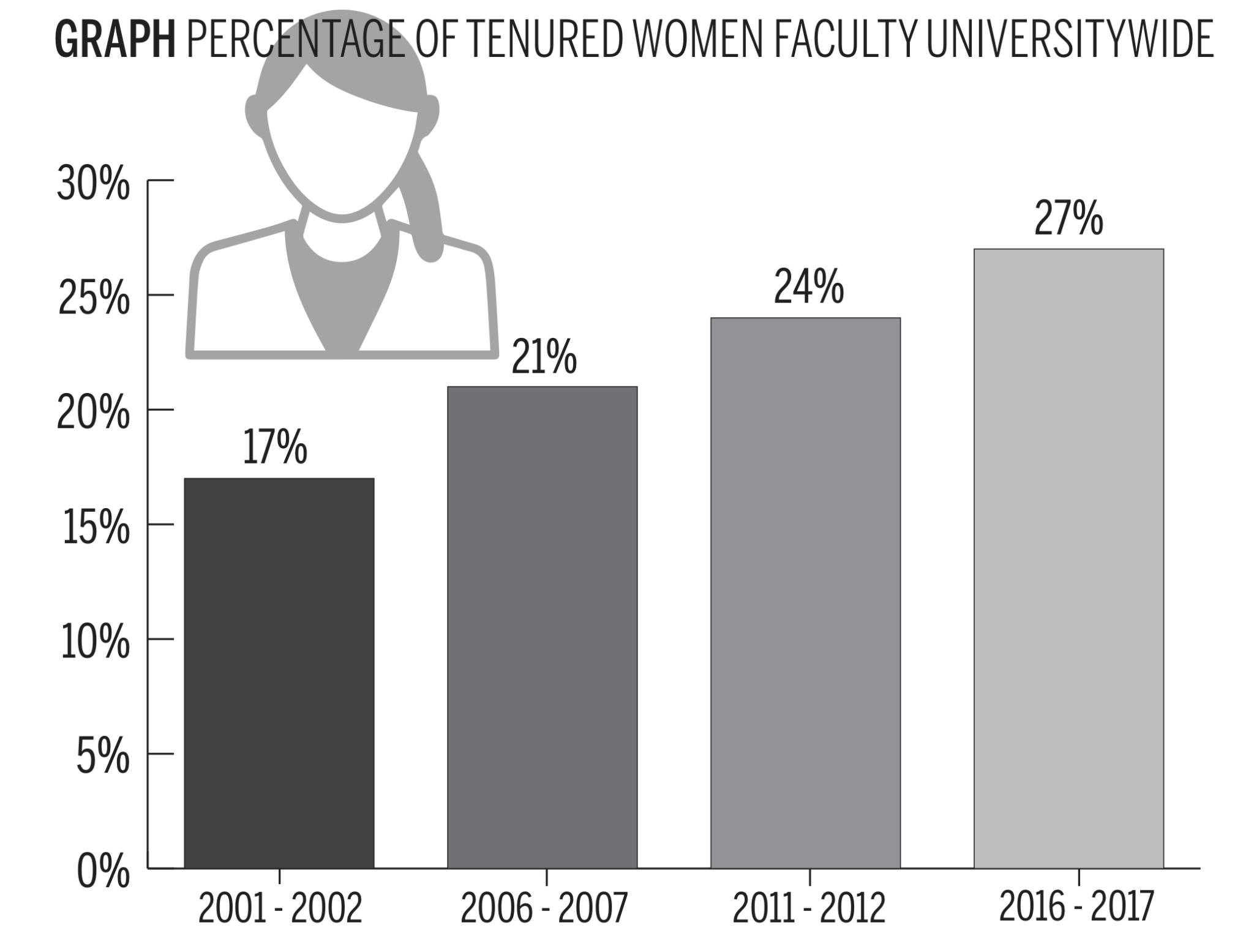
As the #MeToo movement brings sweeping changes for women from Hollywood to Washington, D.C., the Women Faculty Forum released a report last month detailing the state of gender equality at Yale and laying out recommendations for the future.
Since 2002, the WFF has compiled the report, entitled “Women, Men, and Yale University: The View,” every five years. This year’s report, which includes data up to the 2016–17 academic year, found that though the proportion of women in administrative leadership and head of college positions has greatly increased since 2012, the number of women and underrepresented minority faculty with tenure has stagnated, indicating a “worrisome” lack of progress for women in tenured ranks, according to WFF Chair Claire Bowern.
The report also identifies five overarching priorities for the next five years. These include fostering faculty diversity through both hiring and retention, and increasing the proportion of female faculty in departments and programs where their numbers are low, such as the Ecology and Evolutionary Biology and Math departments in the Faculty of Arts and Sciences. In those departments, the percentage of female faculty members is smaller than 10 percent. Kavathas told the News that benchmarks hold departments accountable by setting tangible hiring goals.
“We are concerned at the lack of apparent gains of women in tenured ranks, since we should see increases in women there both from internal promotion and external hiring,” Bowern said. “[The report] implies that without greater focus on retention, hiring initiatives may not have the impact they should.
The report, released on Dec. 4, has received positive feedback from University leadership, including University President Peter Salovey, officials at the FAS Dean’s Office and Dean for Diversity and Inclusion at the Medical School Darin Latimore, according to former WFF chair and co-author of the report, Paula Kavathas.
The report asked that the University reconsider allowing faculty members guilty of sexual misconduct or other serious violations of conduct to retain named professorships. It also called on the University to “take serious steps” to address the lack of gender parity in named professorships, particularly Sterling professorships. As of last academic year, only 14 percent of Sterling professors, Yale’s highest honor for faculty members, were women, according to the report.
“Endowed professorships carry a lot of prestige, and some of them carry financial resources and money, and so they can really benefit a person’s career. It is important that we consciously think about whether they are being equitably distributed and what is the process for deciding who gets them,” Kavathas said.
Still, Bowern said that University leadership deserves credit for the progress it has made at the level of deans and heads of college, where gender parity has been accomplished, and in the FAS, where the number of women department chairs is proportional to the number of full professors. Still, Bowern said, that does not excuse the lack of ethnic diversity in University leadership.
The report also highlighted the significant increase in the proportion of female students at the School of Management, from 27 percent in 2002 to 40 percent in 2017. Bowern said the report shows that the “pipeline” from female graduate students to ladder faculty at Yale is “robust,” even though that progress has not yet translated into tenured or research leadership positions.
The WFF was established in 2001.
Adelaide Feibel | adelaide.feibel@yale.edu







